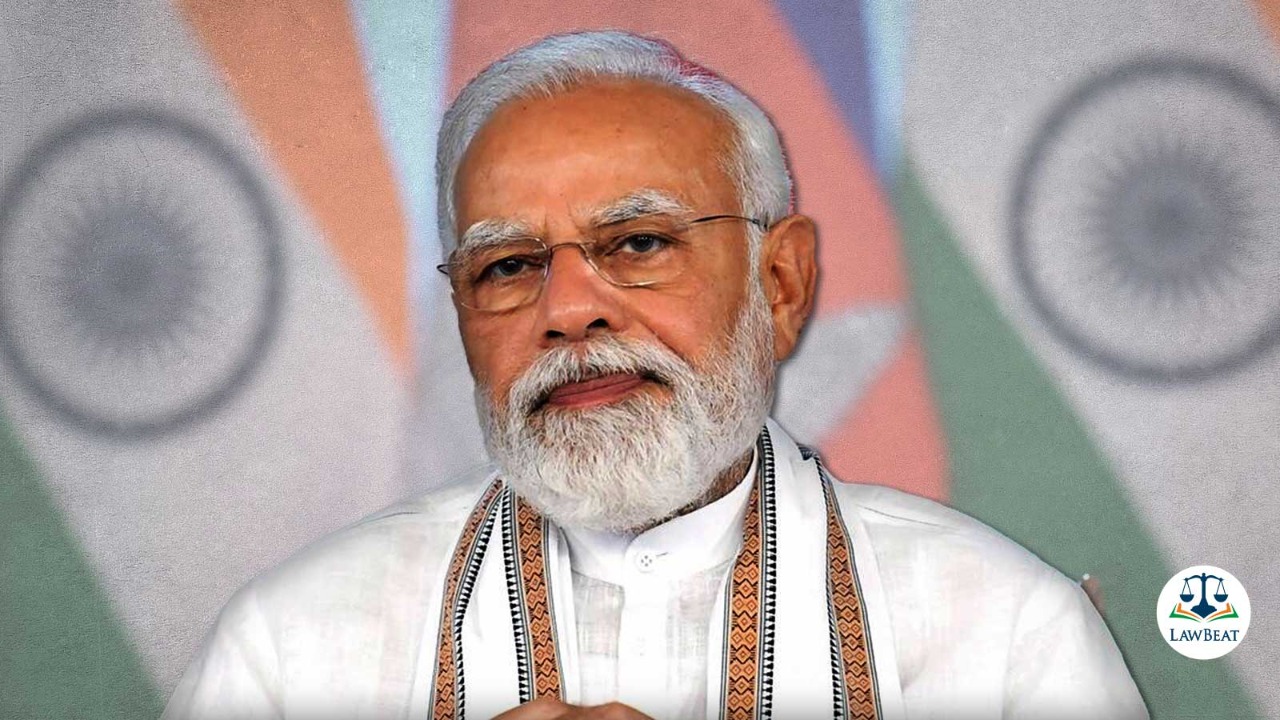


The Delhi High Court has dismissed a plea seeking the disqualification of Prime Minister Narendra Modi from contesting elections for allegedly making religious appeals during a speech in Uttar Pradesh. The plea claimed that PM Modi had asked voters to vote for his party in the name of Hindu and Sikh deities and places of worship, violating the Model Code of Conduct. However, the court dismissed the petition, stating that there was no evidence of a violation and the Election Commission is obligated to make an independent decision on the matter. The plea had also mentioned PM Modi's statements regarding the Ram Temple construction, Kartarpur Sahib Corridor, and GST exemption for langars in gurdwaras.
Delhi High Court Dismisses Plea for PM Modi's Disqualification over Religious Appeals
Background:
The petition against Prime Minister Narendra Modi stemmed from his speech during the 2019 Lok Sabha election campaign in Uttar Pradesh. In the speech, Modi allegedly made religious appeals, asking voters to support his party in the name of Hindu and Sikh deities and places of worship.
Court's Ruling:
On June 22, 2023, the Delhi High Court dismissed the plea seeking Modi's disqualification. The court held that there was no evidence of a violation of the Model Code of Conduct, which prohibits candidates from making religious appeals during elections. The court further stated that the Election Commission is the appropriate authority to investigate and decide on such allegations.
Petitioner's Claims:
The petition, filed by a lawyer named Surinder Singh, had argued that Modi's statements amounted to a violation of the Model Code of Conduct because they appealed to religious sentiments. The petition cited specific statements made by Modi, including:
Court's Reasoning:
The court rejected the petition's arguments, stating that the statements made by Modi were not aimed at influencing voters on religious grounds. The court noted that Modi had made similar statements about other states and religions, and that his speech was not solely targeted at religious sentiments.
The court also emphasized the role of the Election Commission in such matters, stating that it is the Commission's responsibility to interpret and enforce the Model Code of Conduct.
FAQs:
1. What is the Model Code of Conduct?
The Model Code of Conduct is a set of guidelines issued by the Election Commission to ensure fair and ethical elections. It prohibits candidates and political parties from using religious appeals, spreading false information, or engaging in other unethical practices during the election campaign.
2. Can candidates be disqualified for violating the Model Code of Conduct?
Yes, candidates can be disqualified if they are found to have violated the Model Code of Conduct. However, the decision to disqualify a candidate is made by the Election Commission after conducting an investigation and considering all the evidence.
3. What were the specific allegations against PM Modi?
PM Modi was accused of making religious appeals by asking voters to support his party in the name of Hindu and Sikh deities and places of worship. The petition cited specific statements made by Modi during his election speech in Uttar Pradesh.
4. Why did the court dismiss the petition?
The court dismissed the petition because it found no evidence of a violation of the Model Code of Conduct. The court held that Modi's statements were not aimed at influencing voters on religious grounds and that the Election Commission is the appropriate authority to investigate such allegations.
5. What is the significance of the court's ruling?
The court's ruling reaffirms the authority of the Election Commission to interpret and enforce the Model Code of Conduct. It also demonstrates the importance of avoiding religious appeals during election campaigns to ensure fair and ethical elections.

According to sources, the Special Intensive Revision (SIR) exercise in West Bengal has identified a total of 58,80,202 voters who may be excluded from the draft voter list. This includes people who have passed away, transferred, missing, and identified as 'fake' by the Election Commission. These numbers are subject to change in the final list, which is set to be published on February 14, 2022. The commission has divided voters into three categories - own mapping, progeny mapping, and non-mapping - depending on their presence in the 2002 voter list. Those not falling into any of these categories will be called for a hearing by the EC.

In a significant shift in voter sentiment, the Congress-led United Democratic Front (UDF) is set for a decisive win in the Kerala local body elections, dealing a major setback to the ruling CPM-led Left Democratic Front (LDF) ahead of the 2026 Assembly elections. The UDF has consolidated its gains across urban local bodies, while the LDF's last-minute welfare push failed to curb anti-incumbency. The NDA also made significant gains, underlining its expanding presence in urban Kerala.

In a major upset, the BJP-led NDA has won the Thiruvananthapuram Municipal Corporation, ending the CPI(M)-led LDF's 45-year reign. The victory, with the NDA winning 50 out of 101 seats, is a boost for BJP's aspirations in Kerala's upcoming Assembly elections. The party's strong focus on development and Hindutva in Thiruvananthapuram, under the leadership of state unit president Rajeev Chandrasekhar, proved successful despite challenges faced during the campaigning. This victory has put the BJP in a strong position for the 2021 Assembly elections.

The Bharatiya Janata Party-led National Democratic Alliance (NDA) has taken a huge lead in Thiruvananthapuram Municipal Corporation, giving a setback to the ruling Left Democratic Front (LDF). Initial trends show the NDA leading in 25 wards, while the LDF is ahead in 15 wards and the UDF in 10 wards. This is a major blow to the LDF ahead of the upcoming assembly elections in Kerala, with a record voter turnout of 73.69%. The State Election Commission has also commended the peaceful conduct of the elections.

In the ongoing Kerala local body elections, the NDA, led by the BJP, has made a significant jump by winning or leading on 29 out of 101 wards in the Thiruvananthapuram Municipal Corporation. This is a significant increase from their 2015 performance, where they won only 33 wards. Meanwhile, the LDF, which had a strong hold in the corporation, has faced a setback with only 15 wards in their favor. This shift in dynamics has sparked discussions about the LDF's performance under Chief Minister P Vijayan's leadership.

Indian leaders from across party lines paid homage to the security personnel who lost their lives defending the nation's democratic institution in the 2001 Parliament terror attack. A solemn tribute ceremony was held, with Prime Minister Narendra Modi and Congress leaders Sonia Gandhi and Rahul Gandhi, among others, laying floral wreaths. The President and Prime Minister also paid their respects, while the CRPF paid special tribute to a constable who was posthumously awarded the Ashoka Chakra for her bravery during the attack.

The Supreme Court has put a temporary hold on the Kerala High Court's ruling that 404.76-acre Munambam land is not Waqf property. This came after a Special Leave Petition was filed by the Kerala Waqf Samrakshana Vedhi, which contested the High Court's verdict. The Court clarified that despite the stay, the State Government was right in appointing a one-member Judicial Commission to probe the history and nature of the land. Local residents, however, have opposed the petition and argued for their right to the land.

The Andhra Pradesh State Cabinet, chaired by Chief Minister N Chandrababu Naidu, approved a wide range of proposals in the fields of urban development, industries, energy, tourism, infrastructure, and welfare. These decisions are expected to attract an investment of over Rs 25,000 crore and create more than 1.1 lakh jobs. The Cabinet also approved a 3.64% hike in DA/DR for government employees and pensioners, and other initiatives such as the reconstruction of check-dams and the upgradation of teachers in tribal welfare schools.

The Supreme Court has granted a stay on the Kerala High Court's finding that the Munambam land in Ernakulam district is not waqf property. The Court also ordered that the current status quo of the land be maintained until the next date of hearing. Although the High Court's declaration will remain stayed, the inquiry commission headed by former judge Justice CN Ramachandran Nair can continue to function. The case involves a dispute over 135 acres of land that was originally gifted to Farook College, now facing protests and challenges from the local residents.

The passing of former Union Home Minister and Congress heavyweight Shivraj Patil has left a void in the political landscape of Maharashtra. His tenure in the Ministry of Home Affairs was marked by several contentious moments, including controversies over his response to terror attacks and criticism over his attire during a national security crisis. His resignation after the 26/11 attacks in Mumbai had a lasting impact on his reputation, as leaked US diplomatic cables described him as "spectacularly inept". Despite this, Patil is being fondly remembered by Congress leaders for his dedication to public service and contributions to the nation's democratic institutions.